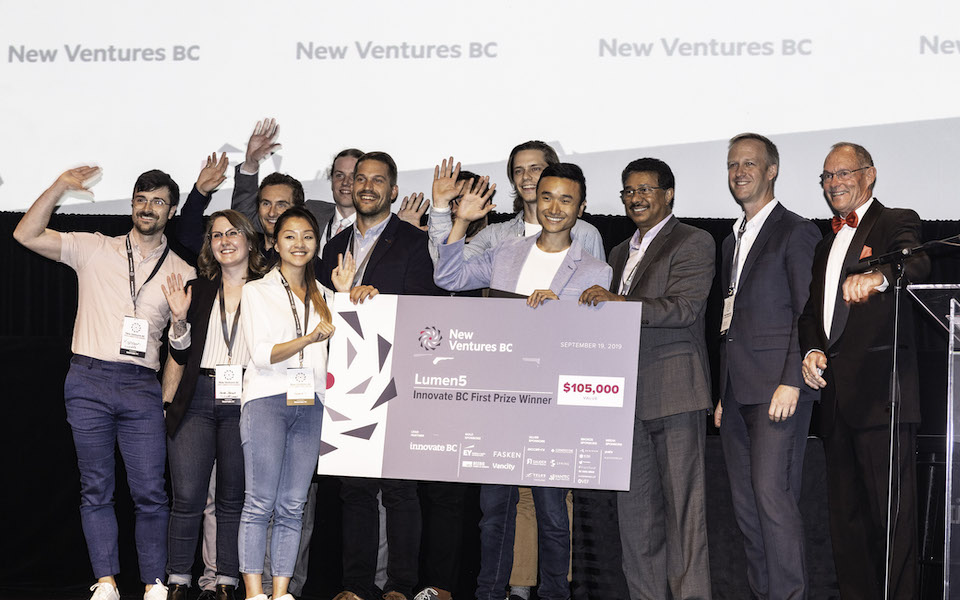
The Working World: How dreaming small helped Canada become a world leader in AI
Published on April 03, 2020
Sometimes it’s good to debunk your own misconceptions. When I was growing up, the first three things that came to mind when I thought about Canada were hockey, Rush, and maple syrup. So when I heard that the Great White North is also the home of the Godfathers of AI and the world’s first country to have a national AI strategy, I had to find out more.
In The Working World series, we’ve been talking with tech workers in different countries to learn how their cultures are adapting to the challenges of modern work. Here in part seven, Michael Cheng, the CEO and co-founder of Lumen5, tells us how Canada has become a catalyst for AI development and why Toronto, Montreal, and Vancouver are attracting so many emerging startups.
The breakthrough moment that ended the AI winter
To understand how Canada became such an influential force in AI, you have to go back to the 1950s when neurologists began to think of the brain as a network of neurons. Bold new theories by Claude Shannon and Alan Turing inspired scientists to consider that it might actually be possible to create a “thinking machine” that could function like an artificial brain.
“In the 50s, there was a lot of excitement about artificial intelligence and what that could mean,” says Cheng. “But all the transformations were really overpromised and oversold in many ways.”
As a result, enthusiasm waned and the field went through periods of ‘AI winter’ when many started to regard the initial promise of AI as a pipe dream. But in Canada, there were three professors who never gave up: Geoffrey Hinton, Yoshua Bengio, and Yann LeCun, who all went on to win Turing Awards in 2018.
"AI was this topic that people had given up on for decades. Then suddenly, there was this breakthrough with great Canadian professors working on the research.”
“They continued their research into neural networks and deep learning,” Cheng explains. “In 2012, there was a breakthrough moment at NIPS, a conference on neural information processing systems. Hinton made a presentation showing how they used image nets to categorize 10 million images into 10,000 categories. Then they reduced the classification error by 20%. Traditionally, improvement in AI is about 1% per year. So just within in 2012, they bypassed 20 years of research.”
“The Canadian government was very proud of that work and realized that there's a real opportunity for Canada to differentiate itself in the world economy,” says Cheng. “You've got Asia and America specializing in lots of things. AI was this topic that people had given up on for decades. Then suddenly, there was this breakthrough with great Canadian professors working on the research.”
As a result, the Canadian government—which has traditionally been generous in funding research and commercial initiatives—introduced a number of new programs and institutions supporting AI development.
Sowing the seeds of a “Silicon Valley of the North”
Cheng says his company has benefitted from two of the programs established in the wake of that breakthrough moment: IRAP, the Industrial Research Assistance Program, and SR&ED, the Scientific Research and Experimental Development tax credit.
“As a ballpark, we get approximately half a million dollars support a year from the government,” he says. “So if you think about how hard it is for startups to raise angel rounds and get a couple hundred thousand dollars, it has allowed us as a company to grow at the scale that we have, without taking on any investments, which is a quite a unique way to build the business. I think without government support that can be tricky.”
To qualify for IRAP funding, though, you must be developing breakthrough technology.
“You can't build an Instagram clone and apply for IRAP. You have to be developing something new,” says Cheng. “With SR&ED, the R&D must be done in Canada. So I can’t outsource our R&D to a different country and still expect to receive support from the government on that. Despite the pressure to relocate to a place like Silicon Valley—with its access to talent and capital—Canada as a country has provided a lot of incentives for teams like us to stay put.”
In 2018, Lumen5 won the Fundica Roadshow, which is a national startup competition, where they were recognized as the fastest growing early stage company in Canada. Then in 2019, the company won the New Ventures BC competition, which is a recognition of the fastest growing company in British Columbia.

“We've been able to do that without raising any capital, which has been a unique part of our story,” he says. “Even in Canada, it's quite uncommon to have a company grow to our size without any kind of funding. Part of that, of course, is government support.”
Modest, but meaningful milestones
Though it’s never wise to generalize about an entire country, there could be some truth to the rumor that most Canadians are nice and polite—and possibly less alarmist and cynical than their neighbors to the south.
“I think there's definitely an optimism in Canada,” says Cheng. “If you read about the beginnings of AI in Canada, a lot of that is the global perspective. It's the immigration policy that has allowed people around the world to come together and work on things. AI became one of those key things. I think that global perspective is interesting because different cultures come into a problem with different relationships with history. Different cultures have experienced different traumas and adversities and so forth.”
“What it really is, is open mindedness,” he says. “In Canada, we are, by default, open minded. I moved here when I was seven. I go to school and it's completely multinational. Every color you can imagine. That open mindedness translates into technology as well.
Canadian modesty and humility also play an important part.
“Canada has flown under the radar as a leader in AI. You can have all these people making breakthroughs, but it's very Canadian of them to not boast and shine the spotlight on [themselves],” he says. “I think the American way is fascinating, which is ‘dream big.’ What is AI in 20 or 30 years when we become an intergalactic species? Canada's approach is less grandiose in some ways.”
“When it comes to something like AI, where the possibilities can be endless, Canadians are great at being like, ‘Let's just look at this one very near-term problem and how AI can solve that.’
“We're not thinking of AI in the context of an intergalactic species, but more ‘How do we solve image classification problems?’” Cheng says. “When it comes to something like AI, where the possibilities can be endless, Canadians are great at being like, ‘Let's stop thinking about the endless possibility. Let's just look at this one very near-term problem and how AI can solve that.’ That has allowed us to incrementally develop deep learning step by step, just solving one problem at a time that's seemingly unimportant.”
Cheng believes those small steps can lead to great strides in technological development.
“No, we're not going to Mars. We're just trying to train the system to know whether this is a dog or a cat. Let's figure this piece out. Then image detection develops, and now the system knows between a dog and a cat. What is the next problem? I think that is also a very classical Canadian way to approach life.”
How new startups can leverage Canada’s advantages
With so many government programs, incubators and accelerators available, Canada has become a magnet for aspiring entrepreneurs. Cheng says it helps to be mindful that there's a different way to build companies in different parts of the world.
“If you're working on the right idea that’s considered to be breakthrough, and R&D is being done in the city or in the country, there's a lot of options beyond what you might commonly hear or read about,” he says. “I think it's important to understand the nuances of the country and the city and the people that you're working with. The readiness and availability of venture capital in the city or in the country is impacted as well.”
“About a year and a half ago, Lumen5 went through a program called Creative Destruction Lab, that focuses on science-based startups,” he says. “It’s a non-dilutive accelerator. They don't take any equity, but still give you the mentors and resources to start a company and accelerate that product to commercialization. Between the programs and resources available in Canada, there are many ways to build a company on little to no capital, which is a major barrier for a lot of people.”




